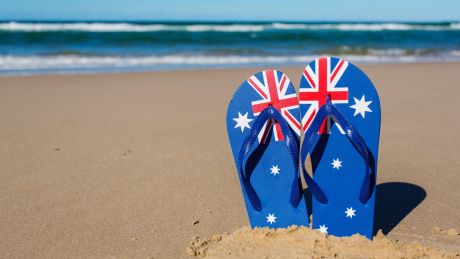
Now for the good news: Life got better for Australians in 2016
The value of our collective wellbeing increased by $22 billion in 2016

The value of our collective wellbeing increased by $22 billion in 2016

When the media headlines hit about bad behaviour by men at the highest levels of corporate Australia, female board directors can't help but feel despondent.

Fabulous news on the economy this week. The recession that never was, didn't happen. Phew. That's a relief.

The OECD has warned of a "rout" in Australian house prices leading to a new economic downturn, saying both prices and household debt have reached "unprecedented highs".

This week's rebound in GDP growth after a shock September quarter means the economy has now expanded for more than a quarter century, and is closing in on the record held by the Netherlands. But the smashing growth may not be quite as good as it seems.

Australia's top economic bureaucrat has begged the government not to spend the coming windfall from soaring coal and iron ore prices, saying if it did it would repeat the mistakes of prime minister John Howard and treasurer Peter Costello in the early 2000s.

Peter Thompson had an unlikely saviour last year: the humble chickpea.

The ACT's economy bounced back in the December quarter, growing 1.6 per cent, much faster than NSW and most other states.

Corporate Australia may have lost the debate on tax reform, says Australian Institute of Company Directors chairwoman Elizabeth Proust.

Treasury boss John Fraser has implored Parliament to consider cutting the company tax rate, saying it would be "critical" to respond to international competition.

The strong result means Australia is likely to technically avoid a recession.

A yawning growth gap has opened between our inner cities and the rest.

An appeal against a multimillion dollar tax bill owed by multinational oil giant Chevron is taking place, and will have global implications for the way tax paid by large companies is assessed.

Australia could record its first current account surplus since the mid-1970s this year, economists say.

The Turnbull Government proposed company tax cut would cut national income for years before it boosted it and would never be self-funding, a new analysis from the Grattan Institute has found.

In Australia, micro-economic reform has degenerated into a form of rent-seeking that's saying the way to a prosperous economy is to keep business – the people who create the jobs – as happy as possible.

Economists expect Australia to avoid a technical recession when official GDP data is released on Tuesday.

Reserve Bank governor Philip Lowe has no plans to cut interest rates, and worries that he did he would make an already indebted nation "more fragile".

This is interesting: the Fair Work Commission has pretty much agreed with the Productivity Commission's recommendations on penalty rates, so penalty rates should be sharply higher for everyone on shift work.

Reserve Bank Governor Philip Lowe has dashed hopes of a further cut in interest rates, pleading for people to "focus on other things other than quarter of a per cent moves in the cash rate".

Former Treasury chief and National Australia Bank chairman Ken Henry is far from a zealot on cutting company tax rates.

The next generations are going to be in real trouble if we don't get on top of this housing affordability crisis.

Former treasury boss Ken Henry has backed the government's 10-year plan to cut the company tax rate, saying it should be done even sooner.

Plans for mining investment are down 20 per cent and plans for manufacturing investment are down 1.2 per cent.

Low wage growth is what the Coalition wanted. Within weeks of being sworn in as employment minister in 2013 Eric Abetz warned "weak-kneed employers" not to cave in to unreasonable demands.

Private-sector wage growth has slid to record low of just 1.8 per cent, throwing into doubt budget projections and confounding the Reserve Bank, which would prefer not to have to cut interest rates again and run the risk of reigniting house prices.

The head of Australia's central bank said on Wednesday the risks of encouraging more borrowing by already heavily indebted households argued against seeking a faster return of inflation to its target band, another sign rate cuts were off the table.

The Reserve Bank predicts rising resource exports in a more positive global environment will spur growth as the drag from falling mining investment wanes.

Tony Blair wants fellow Britons to "rise up" and block or soften Brexit, but it may now be out of their hands - many Europeans just want them to get on and get out.

When do you become a senior citizen? It might be time to think of people younger than 74 as "pre-old", medical experts in Japan say.

The multi-millionaire businesswoman says it's her No.1 piece of advice to entrepreneurs.

The Small Business and Family Enterprise Ombudsman gets "emotional" facing a Senate estimates committee on Thursday.
Save articles for later.
Subscribe for unlimited access to news. Login to save articles.
Return to the homepage by clicking on the site logo.